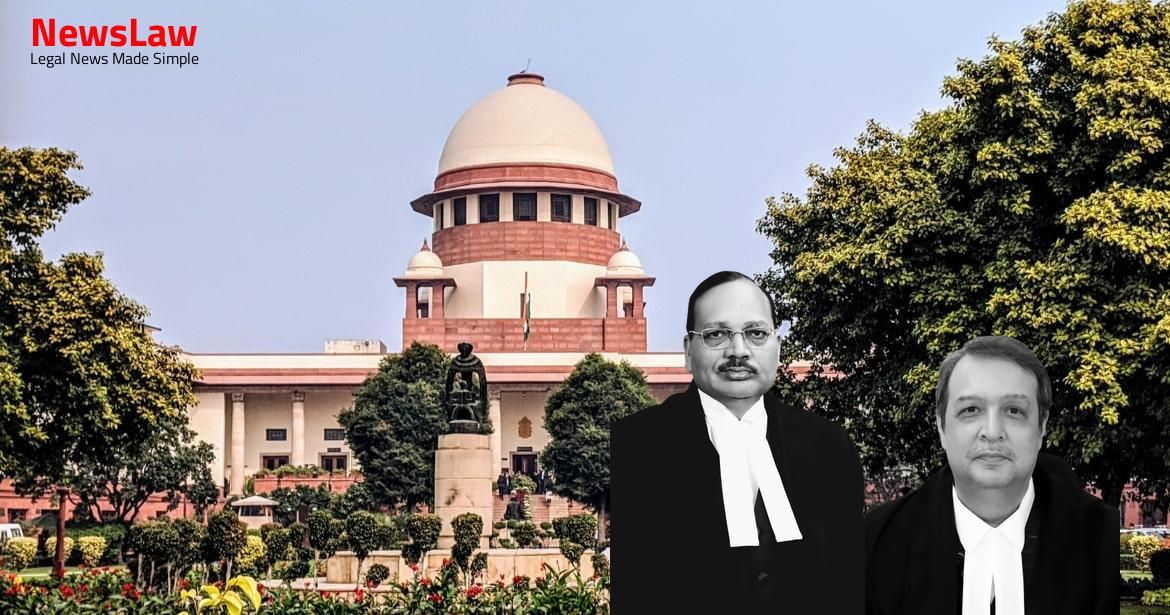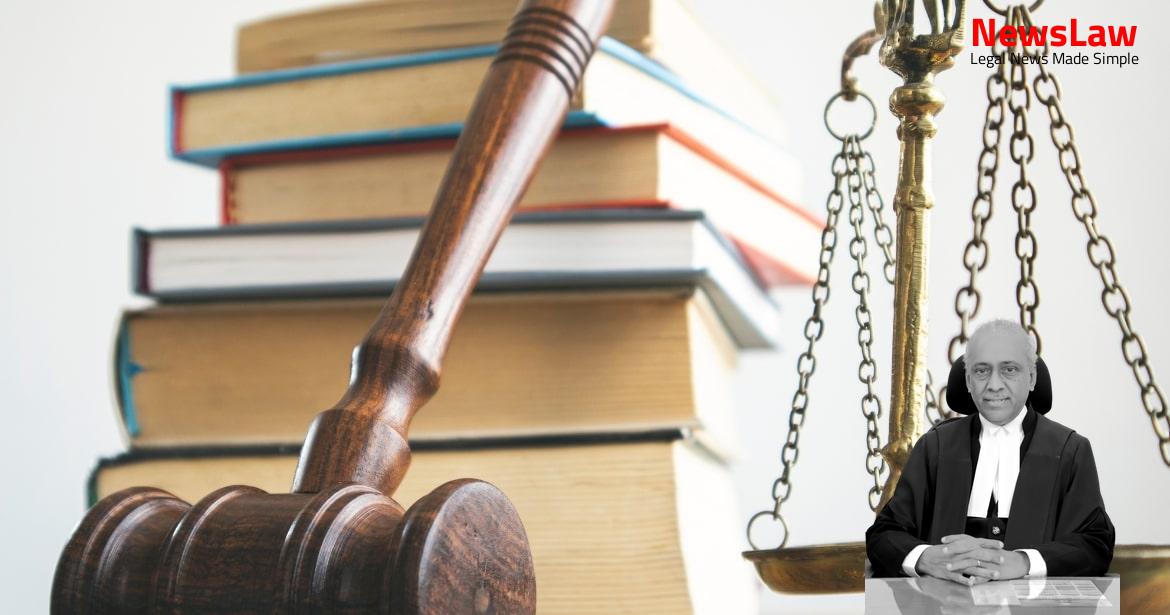In a recent legal case, the court provided a comprehensive analysis of the stamp duty requirement in arbitration agreements. The focus was on dissecting the intricate legal aspects related to stamp duty payment and its impact on the validity and enforceability of arbitration agreements. Understanding the court’s legal analysis is essential for a deeper comprehension of the requirements and implications surrounding stamp duty in arbitration agreements.
Facts
- The respondent failed to pay the required fee under the HMA since early 2016.
- The petitioners invoked Section 9 of the Arbitration Act for interim relief before the High Court of Karnataka at Bengaluru.
- The High Court passed an ad-interim order on 23.10.2018, preventing the respondent from evicting the petitioners without due process of law.
- The petitioners claimed that the respondent did not comply sincerely with the court order and took steps to frustrate it.
- The HMA detailed the rights and obligations of the parties and outlined the investment recovery process for setting up the hotel.
- The respondent terminated the HMA unilaterally on 12.10.2018, rebranding the hotel as Miraya Hotels.
- The petitioners contended that the termination was invalid as it lacked a legal basis.
- Further legal actions were taken by the petitioners to address the respondent’s actions.
Also Read: Electoral Malpractices in Mayor Election
Analysis
- The Tribunal shall consist of a sole Arbitrator.
- Section 3 of the Maharashtra Stamp Act does not mandate stamp duty for arbitration agreements.
- The payment of stamp duty under the Karnataka Stamp Act has been challenged by the respondent.
- The petitioners have paid the stamp duty and penalty as required by the Karnataka Stamp Act.
- The arbitration agreement remains valid and enforceable regardless of stamp duty payment on the substantive contract.
- The jurisdiction for stamping of the HMA is under the Karnataka Stamp Act.
- The issue of insufficient stamping raised by the respondent is the primary concern.
- The HMA is a services agreement covered under Article 5(j) for stamp duty purposes.
- The petitioners have not followed the proper procedure for adjudication of stamp duty.
- The court has jurisdiction to appoint an arbitrator despite pending stamp duty issues.
- The doctrine of separability protects the arbitration agreement independent of the main contract.
- Courts were examining ‘subject-matter arbitrability’ at the pre-arbitral stage before the 2015 amendment.
- As per the judgment in Vidya Drolia, issues concerning the existence of the arbitration agreement should be considered at a prima facie level by the Courts.
- Special classes of rights and privileges that are constitutionally or legislatively provided may impact the arbitrability of a subject-matter.
- Non-payment of stamp duty on the commercial contract does not invalidate the arbitration agreement as held in Garware Wall Ropes case.
- The doctrine of separability overrides concerns under Stamp Acts, and the court’s examination of the validity of an arbitration agreement is limited to specific aspects.
- Justice Sanjiv Khanna’s opinion in Garware Wall Ropes Ltd. emphasized the distinction between the first and second parts of Section 7(2) of the Arbitration Act regarding the ‘existence’ and ‘validity’ of the arbitration agreement.
- The Court referred the issue for authoritative settlement by a Constitution Bench in light of Vidya Drolia and the ratio in Garware Wall Ropes.
- Need to examine nature of substantive agreement and arbitration agreement to ascertain stamp duty payment under Karnataka Stamp Act
- Petitioners self-adjudicated stamp duty and paid Rs 2,200/-, initially describing the HMA as a ‘bond’
- Further purchased 11 e-stamps for Rs. 200/- each, describing the HMA as an ‘agreement’ under article 5(j)
- Court to review nature of agreement to determine stamp duty payable
- Cannot review adequacy of stamp duty paid at this stage; it may be addressed later
- Not a case of complete non-stamping, so N. N. Global concern not applicable
Also Read: Balancing Power and Transparency: Electoral Bonds Struck Down, Disclosure Mandated
Decision
- Mr. Justice A.V. Chandrashekara, a former Judge of the High Court of Karnataka, is appointed as the sole arbitrator.
- The place of arbitration will be SIAC in Bengaluru, and English will be the official language of the arbitration.
- If the Parties cannot agree on the sole Arbitrator, a tribunal of three Arbitrators will be formed.
- If the Arbitrators appointed by the Manager and the Owner cannot agree on the third Arbitrator, it will be appointed by a Competent Court of Law in Bangalore.
- The decision and award of the Arbitrator will be final and binding and enforceable by the Indian Courts.
- In case of disputes, efforts should be made to resolve them in a fair, amicable, and friendly manner before proceeding to arbitration.
- If resolution efforts fail within ten Business Days, the disputes will be determined by arbitration according to the Arbitration Rules of SIAC.
- The parties are directed to convey the order to the SIAC to proceed as per the SIAC rules.
Also Read: Recall of Resolution Plan Approval: Legal Analysis
Case Title: INTERCONTINENTAL HOTELS GROUP (INDIA) PVT. LTD. Vs. WATERLINE HOTELS PVT. LTD. (2022 INSC 90)
Case Number: ARBIT.CASE(C) No.-000012 / 2019



